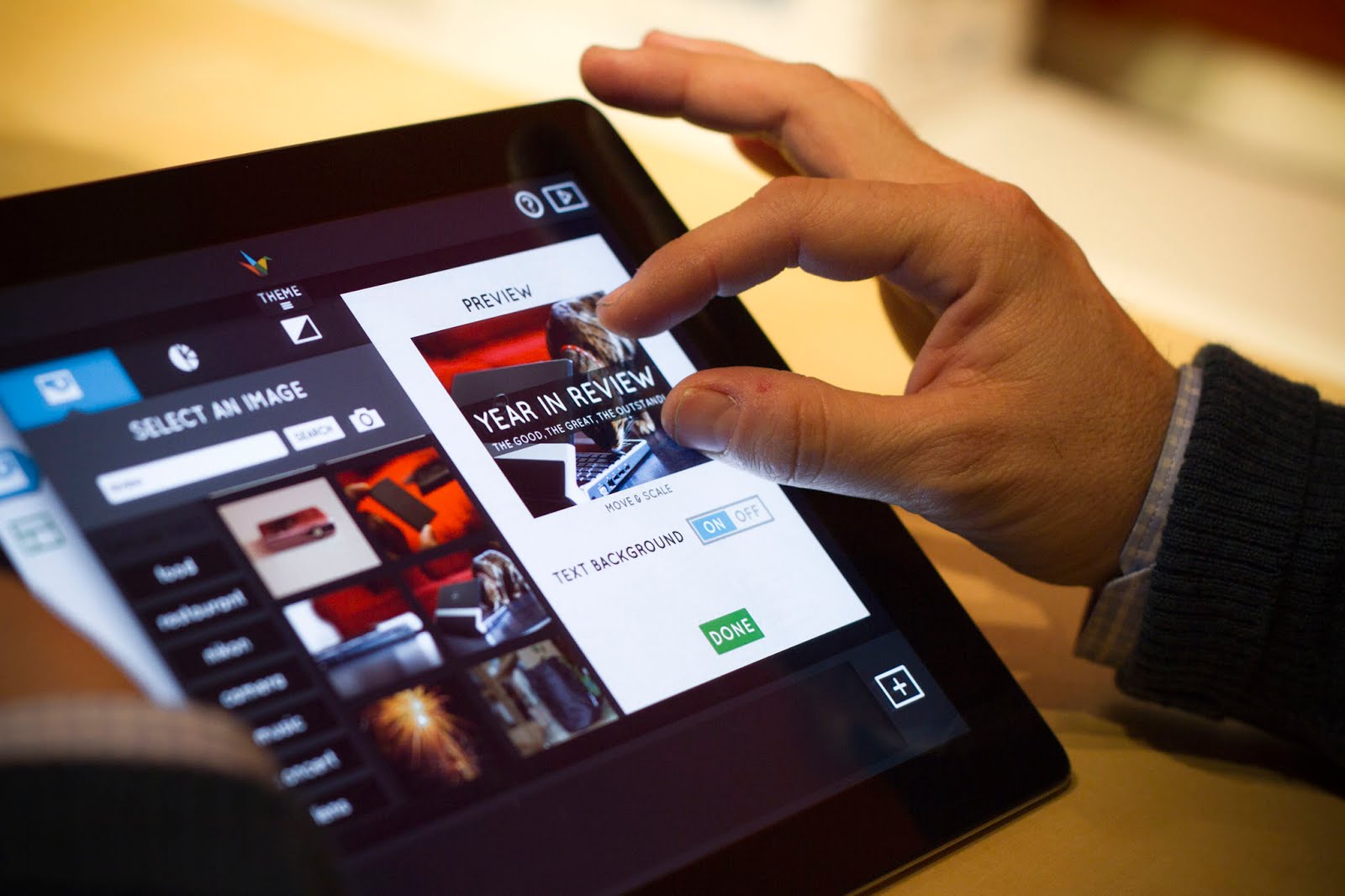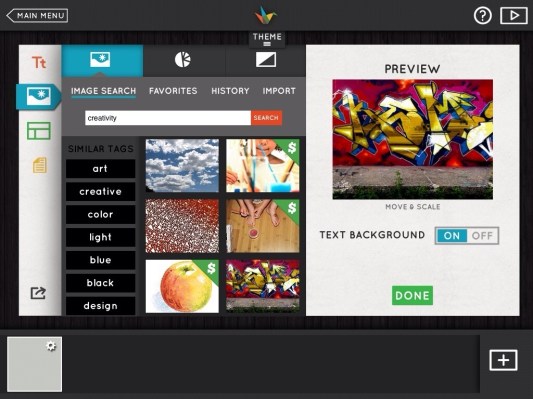Haiku Deck, the iPad-based presentation tool that aims to be both simpler and more effective than Microsoft’s cumbersome desktop PowerPoint software, today unveiled version 2.1, which adds a number of top-requested features, and which also brings Getty Images to the app. The Getty deal means that users will be able to select from a selection of Getty’s stock imagery, at a special price that covers one-off licensing for use exclusively within the Haiku Deck app.
The Getty deal brings a subset of its massive library into the app, searchable by keyword and concept, which both Haiku Deck founder Adam Tratt and Getty Images Director of Creative Content Andrew Delaney said is a key benefit it can provide users of the app above and beyond the free Creative Commons content that is already offered within the app for finding photos. Delaney explained in an interview that Getty’s curation of its library means big benefits for business users over using the largely uncategorized or inconsistent tagging of Creative Commons pics.
“We’ve known for years that our shop window is an image being reviewed as a thumbnail, and they live or die on that basis,” he said. “When you’re putting a presentation together with Haiku Deck, you want to be able to have real impact. So having access to images that have been carefully curated, and carefully created, and are legally safe to use, is going to make a very big impact.”
Delaney notes that Getty has years of experience tagging images according to how their users search for content – so vague concepts that are hard to embody like “beauty” and “motivation” will actually bring in interesting results, both of the kind a user might be expecting, and adding in some surprising stuff that might not be what a user was looking for, but might actually be better overall for their purposes anyway.
 The licensing arrangement with Haiku Deck involves a one-time fee of $1.99 for each photo purchased from Getty (and uses its API), which the buyer can then use in Haiku Deck presentations exclusively. It’s a new licensing model for Getty, and one that Delaney says represents the company’s new approach to the changing nature of online media; in an app-based, mobile-centric world, this kind of licensing, which is more affordable but tied to a specific piece of software, in many ways makes a lot more sense than the older, more expensive model that licenses for broader use.
The licensing arrangement with Haiku Deck involves a one-time fee of $1.99 for each photo purchased from Getty (and uses its API), which the buyer can then use in Haiku Deck presentations exclusively. It’s a new licensing model for Getty, and one that Delaney says represents the company’s new approach to the changing nature of online media; in an app-based, mobile-centric world, this kind of licensing, which is more affordable but tied to a specific piece of software, in many ways makes a lot more sense than the older, more expensive model that licenses for broader use.
As for the rest of the updates to Haiku Deck, they make small but key changes to the slide creation process. Other new image features include an image history and image favoriting, to help make it easier for users to come back to what they’ve used in the past. Also new are both public and private notes. The former helps with adding more context to presentations when sharing them with others via the web, and the latter is useful for presenters, since it offers you a glimpse at both the slide being presented and the private presenter notes when you’re outputting your Haiku Deck shows to an external screen and holding your iPad in portrait mode.
The HaikuDeck update is free, but it adds two new premium and one new free theme. And Haiku Deck gains a new source of revenue as it splits the proceeds of the Getty images licensed through the app, though that’s a three-way deal since Apple also takes its standard 30 percent cut on in-app purchases. Still, it’s good to see a solid tool like Haiku Deck expand its revenue options, which should help with continued viability, at the same time as it expands its feature set in useful ways that don’t compromise the simplicity of the app.
